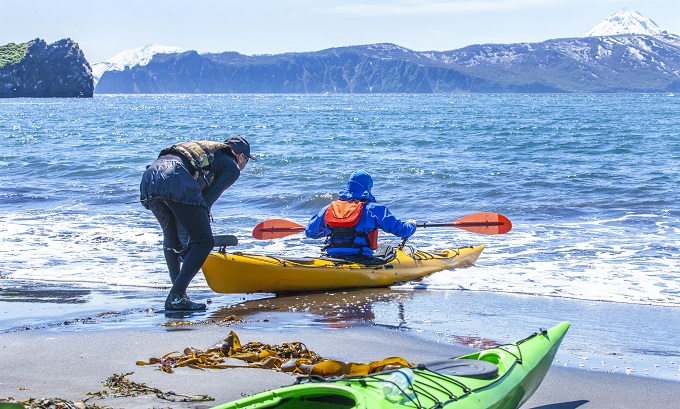
<h2>University of Otago researchers have identified adventure education as a potential tool to help tackle the mental health challenges facing Māori and New Zealand European adolescents in New Zealand.</h2>
<p>The findings of the study have recently been published in <i><a href="https://www.tandfonline.com/doi/full/10.1080/1177083X.2018.1508479" target="_blank" rel="noopener">Kōtuitui: New Zealand Journal of Social Sciences.</a></i></p>
<p>The researchers utilized a Positive Youth Development (PYD) approach, measuring the positive changes adventure education can foster in youth. The focus of the study was the seven day youth voyages on the <a href="http://tucker.co.nz/" target="_blank" rel="noopener">R. Tucker Thompson</a>, a gaff-rigged schooner based in the Bay of Islands. The youth that take part in the voyages are predominantly Māori and drawn almost exclusively from Northland.</p>
<blockquote>
<p>“We wanted to investigate how and why programs like the R. Tucker Thompson are often viewed as positive ways to build resilience in our young people. Our view is that youth today are not less resilient than previous generations, but they face a rapidly changing world and we need to ensure that they are well equipped to face life’s challenges,” says Hitaua Arahanga-Doyle, lead author of the study and a PhD student at Otago’s Department of Psychology.</p>
</blockquote>
<p>The findings demonstrated increases in psychological resilience for the youth who undertook the voyage. Importantly, these increases in resilience seemed to be driven by the social/collective identity the adolescents formed with their group over the course of the voyage.</p>
<blockquote>
<p>“The group aspect is particularly interesting. The positive changes in the youth on board were linked to working as a group in order to overcome the new and often demanding situations on the voyage rather than tackling them as an individual. This ethos of relationships and the importance of others maps well onto Kaupapa Māori views of health and identity, where personal development and resilience are always viewed in the context of values such as whanaungatanga, a sense of belonging to and holding a collective identity with others. This understanding and use of Kaupapa Māori is something that the Tucker Thompson is actively incorporating within their voyage,” Mr Arahanga-Doyle says.</p>
</blockquote>
<p>Study supervisor, Dr Damian Scarf, a Senior Lecturer at Otago’s Department of Psychology, says the results of the study point towards viewing adventure education as a useful tool in combating concerning statistics in the area of mental health disorders such as anxiety and depression.</p>
<blockquote>
<p>“Rather than dwelling on the negative, what we’ve demonstrated is that through providing positive ways to develop our young people we can increase their resilience, and in doing so we hope to decrease negative outcomes. A key finding is that resilience is not simply a property of the individual, resilience is built through social support and being accepted by important others. The voyage is tough and the resilience displayed by youth is built on the collective identity they form with other youth and the crew on board. When young people struggle we would do well to broaden our focus, looking at whether these other factors are in place, rather than ignoring context and focusing the blame solely on the individual,” Dr Scarf says.</p>
</blockquote>
<p>The authors also believe the study highlights the need to address the particular mental health challenges faced by adolescent Maori and adolescents from low socio-economic backgrounds, who are disproportionately represented in New Zealand mental health statistics.</p>
<blockquote>
<p>“The Tucker is not a silver bullet, it is one piece of a really big puzzle. The people at the Tucker work extremely hard connecting with schools and other organisations in the Northland region. Building a network of groups and organizations that support youth is critical if we wish to turn around New Zealand’s concerning statistics regarding mental health in youth,” says Dr Scarf.</p>
</blockquote>
<p>He says the next step of the study will be to collect qualitative data from participants. “The qualitative data will provide a much richer view of the voyage and how youth think about belonging, identity, and other aspects of the voyage.”</p>

Curriculum rewrites at the Ministry of Education are struggling with a lack of clarity, according…
Opportunities are critical for preteens to build confidence and capability, says Chisnallwood Intermediate, acclaimed for…
AI detection tools are trained on native English users, which could create bias.
Opinion: Why the Minister’s announcement on open-plan classrooms distracts from what really matters in education.
Positive wellbeing means resilient communities and effective learning.
A new campaign from the Teaching Council of Aotearoa New Zealand aims to lift the…
This website uses cookies.